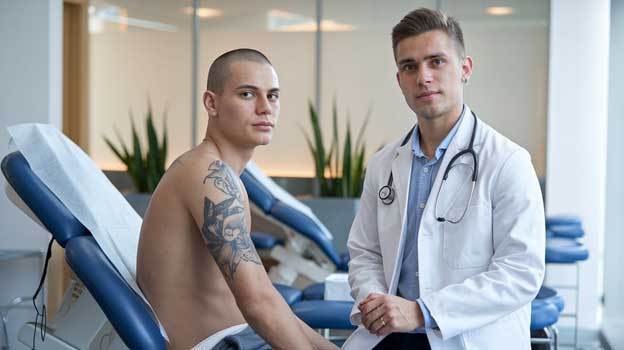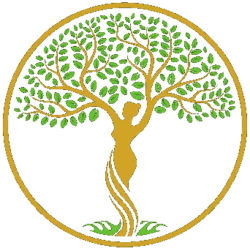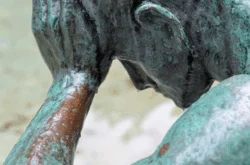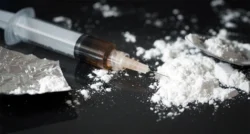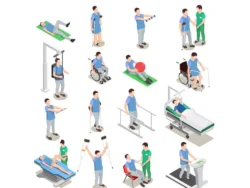Key Takeaways
- Substance use disorder (SUD) is a chronic condition requiring professional recovery treatment.
- Medical detox and residential treatment programs are essential steps to getting clean.
- Comprehensive care addresses the physical, emotional, and psychological aspects of addiction.
Introduction
Getting clean from drugs is a courageous and life-changing decision. For many, the path to recovery is not an easy one. Substance use disorder (SUD) is a complex condition that affects both the mind and body, often requiring professional help to overcome.
Drug addiction treatment programs provide the structure, support, and tools needed to break free from the grip of addiction. These programs combine medical care, therapy, and holistic approaches to address all aspects of recovery. If you or a loved one is struggling with addiction, understanding these programs can help you take the first step toward a healthier, happier future.
What Is Substance Use Disorder?
Substance use disorder (SUD) is more than just habitual drug use; it’s a chronic disease that alters brain function and behavior. People with SUD often find it hard to stop using drugs, even when it negatively impacts their health, relationships, and responsibilities.
Common substances associated with SUD include opioids, alcohol, stimulants, and benzodiazepines. Without treatment, addiction can lead to severe physical and mental health problems, including overdose.
Why Professional Help Is Essential
Trying to quit drugs without professional help can be dangerous. Withdrawal symptoms like nausea, anxiety, and seizures can be life-threatening if not properly managed. Additionally, the risk of relapse is higher without medical and emotional support.
Drug addiction treatment programs provide a safe environment where individuals can focus on recovery with the help of trained professionals.
Components of a Drug Addiction Treatment Program
Medical Detox
Medical detox is often the first step in a treatment program. This process involves clearing the body of harmful substances under the supervision of medical professionals. Detox helps manage withdrawal symptoms and stabilizes individuals, preparing them for further treatment.
During detox, medications may be prescribed to ease symptoms like anxiety or cravings. A supportive environment ensures patients are safe and comfortable as they take the first critical step toward recovery.
Residential Treatment
Residential treatment provides a structured, immersive environment where individuals receive 24/7 care. These programs offer therapy, group activities, and skill-building exercises to help patients develop healthy habits and coping mechanisms.
Living in a drug-free space allows individuals to focus entirely on their recovery without the distractions or triggers of daily life. The supportive community within a residential program fosters connection and understanding, both vital for healing.
Therapeutic Approaches
Therapy is a cornerstone of addiction treatment. Cognitive Behavioral Therapy (CBT) helps individuals identify and change negative thought patterns that contribute to substance use.
Group therapy provides a sense of community and shared experience, reducing feelings of isolation. Many programs also offer holistic therapies like mindfulness and yoga to promote emotional well-being.
The Recovery Journey
Steps in the Process
Recovery from addiction often involves three key stages:
- Detox: The initial phase where the body clears itself of substances.
- Residential Treatment: A focused program for therapy and skill-building.
- Aftercare: Continued support through outpatient care, counseling, or support groups.
Each stage builds upon the last, creating a comprehensive approach to recovery.
The Importance of Support Systems
Support from family, friends, and professionals plays a significant role in recovery. Treatment programs emphasize the importance of a strong support network, helping individuals rebuild relationships and gain encouragement throughout their journey.
Benefits of Comprehensive Addiction Treatment
Physical Benefits
Treatment programs address the physical toll of addiction, improving overall health. Patients often experience better sleep, increased energy, and a more robust immune system.
Emotional Benefits
Emotional healing is another crucial aspect of recovery. Therapy helps individuals develop self-esteem, manage stress, and build resilience.
Long-Term Sobriety
Integrated programs lay a strong foundation for lasting sobriety. By addressing the root causes of addiction and equipping individuals with tools for relapse prevention, these programs reduce the likelihood of relapse.
Overcoming Challenges in Recovery
Facing Withdrawal Symptoms
Withdrawal can be one of the most challenging parts of recovery. Symptoms vary depending on the substance but may include physical pain, mood swings, and cravings. Medical detox provides the necessary support to manage these symptoms safely.
Staying Committed
Maintaining motivation during treatment can be challenging, especially when faced with setbacks. Setting small, achievable goals and celebrating progress helps individuals focus on recovery.
Financial and Logistical Barriers
The cost of treatment can be a concern for many. However, insurance plans, state-funded programs, and community resources can help make care more affordable. Seeking treatment is an investment in a healthier, more fulfilling future.
Choosing the Right Treatment Program
When selecting a treatment program, it’s essential to consider the following:
Comprehensive Offerings
Look for facilities that provide medical detox, residential treatment, and holistic therapies. A wide range of services ensures all aspects of addiction are addressed.
Accreditation and Experience
Choose a center with licensed professionals and a proven track record of success. Accreditation guarantees high standards of care.
Aftercare Support
Aftercare plans are vital for maintaining sobriety after leaving the program. Ensure the facility offers outpatient services, counseling, and support group referrals.
Conclusion
Overcoming drug addiction is not just about stopping substance use; it’s about reclaiming your life. A comprehensive treatment program provides the tools, support, and guidance to achieve lasting recovery.
By combining medical detox, therapy, and aftercare, these programs address the physical, emotional, and psychological challenges of addiction. Recovery is possible for everyone, and taking the first step can lead to a brighter future.
If you or a loved one is ready to start the journey to recovery, Contact Virtue Recovery Killeen at 725-777-5685 today. Compassionate professionals are here to help you every step of the way.
FAQs
What is the first step in overcoming drug addiction?
The first step is usually medical detox, where the body is safely cleared of harmful substances under medical supervision.
How does residential treatment work?
Residential treatment provides a structured, drug-free environment with 24/7 care, therapy, and activities to promote recovery.
What therapies are included in addiction treatment?
Common therapies include Cognitive Behavioral Therapy (CBT), group counseling, and holistic practices like mindfulness and yoga.
Resources:
https://www.usa.gov/substance-abuse
https://medlineplus.gov/druguseandaddiction.html
